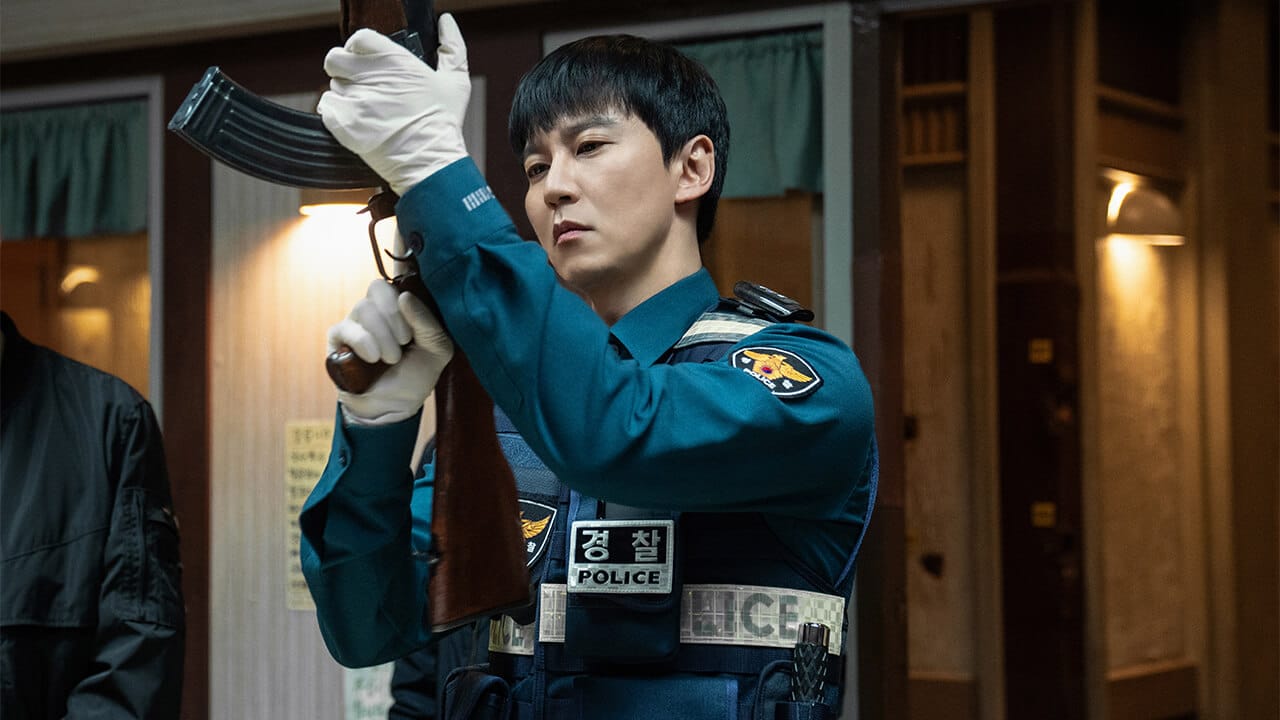The World Sinophone Drama Competition for Young Playwrights is the largest playwriting contest in the Chinese-speaking world. Open to playwrights aged 18 to 36, it accepts plays written in either Mandarin or English from around the globe. Prior to the award ceremony of the 7th World Sinophone Drama Competition, Cheng-Han Wu, Artistic Director of the Prologue Center for New Plays, sat down with Katherine Chou, Chair of the World Sinophone Drama Competition for Young Playwrights, to reflect on the competition’s past, present, and future.

Katherine Chou
WU: What’s the story behind the founding of the World Sinophone Drama Competition for Young Playwrights?
CHOU: I’ve long been aware that the West has maintained cultural hegemony over the East, especially in the realm of drama and theatre. Back in the early 1990s, when I was a PhD student in the U.S., Chinese performing arts—despite their rich history—were largely absent from theatre curricula. Around the same time, international arts festivals began to flourish. Asian curators frequently invited artists from Europe or North America, while invitations in the opposite direction were far less common. This imbalance of cultural influence struck me as problematic. However, about ten years ago, the English-speaking world seemed to develop a growing interest in Chinese-speaking communities. It felt like the right moment to launch a playwriting award to rebalance the cultural dynamic between the West and the East.
WU: Why does the competition accept plays written in either Mandarin or English, and why is it limited to younger playwrights?
CHOU: Chinese communities have a migration history of more than 150 years. While these immigrants traveled for various reasons—such as to improve economic status, flee political persecution, or pursue higher education—they all contributed to cultural exchanges that created spaces where Chinese culture both integrated with and was enriched by others. Knowing how much the concept of “Chinese” had evolved, I decided that it was best to minimize restrictions on the language of the play or the nationality of the playwright. Therefore, the competition welcomes submissions worldwide in either Chinese or English.
There wasn’t any grand theory behind the age restriction, though. When the competition was still in the planning stage, I just felt it would be more pragmatic to accept submissions from playwrights with similar levels of experience. It would be unfair to pit a new talent against a published writer, right? Also, at that point, younger playwrights had fewer resources and opportunities, so it made sense to focus on that group.
WU: While the contestants share a common linguistic or cultural heritage, their works are shaped by the specific regions where they were born, raised, and educated. I was once part of the jury, and to my amazement, many plays were even written partially in dialects. What’s your take on incorporating dialects into playwriting?
CHOU: On a personal level, I appreciate writing in dialects. My background has equipped me with the ability to understand them, and I find that dialects make the characters more vivid, sometimes to the point where it feels like they are speaking to me directly from the page. From a sociological perspective, using dialects in playwriting also reflects how Chinese communities switch between languages and dialects in daily life. In fact, we’ve always lived in a multilingual environment without fully realizing it.
However, I can imagine being in a difficult position if I were the playwright. Entering an international competition, I might worry that using dialects could limit the audience and reduce my chances of winning. Readability is always a concern for playwrights who write in dialects. As the chairperson, what I can do is form a jury with diverse regional backgrounds and familiarity with dialects. I also bring in new members and rotate out some of the previous ones in every cycle, so it’s never the same group. Still, it’s tricky for playwrights to find a balance between writing in dialects and imagining a global audience.
WU: Has there been any play that you personally feel embodies the spirit of the World Sinophone Drama Competition?
CHOU: Every winning play is, in its own way, a restatement of why the competition was launched in the first place. That said, the one that left the strongest impression on me was Holy Crab! by ZHU Yi, the first-prize winner of the first cycle. She developed a sharp and witty observation of American society while studying abroad. Her dark comedy draws an analogy between immigrants and invasive species, and reading it feels like dancing along the line that challenges political correctness. Chronicle of Exile: Who Am I? by KUO Chen-Wei is also worth mentioning. The play deals with undocumented migrant workers from Southeast Asia in Taiwan. Rather than passing judgments, it opens up a nuanced conversation about the relationship between this community and the island. I think both plays express a global vision from the Sinosphere. Maybe that’s the spirit of the competition.
02.jpg)
02.jpg)
The staged reading of Homeland 1961, third-prize winning play of the fourth cycle. Courtesy of Research Center For Theater & Performance Studies at National Central University. Photo by Hao Chen.
WU: The World Sinophone Drama Competition also invites dramaturgs and translators to collaborate with the winning playwrights before the staged reading and award ceremony. Such attention to revision and translation is rarely seen in other playwriting awards. Could you tell us more about this process?
CHOU: As you know, in the Sinosphere, many plays become closet dramas after winning awards because they’re still considered unproducible. That seems like a pity to me. The playwrights are talented, their plays are imaginative, and all it takes is a few more revisions. So, to help the playwrights understand the value of revision, the competition introduces dramaturgs and organizes a staged reading for the three winning plays.
Translators are involved for a different but related reason. Since the competition aims to reach both Chinese-speaking and English-speaking audiences, translation goes both ways. Chinese plays are translated into English, and English plays into Chinese. Generally, plays have a better chance of circulating and getting produced when available in two languages. In short, dramaturgical consultation, English or Chinese translation, and staged readings are all ways to bring the winning plays closer to production.
WU: Have you observed any trends in playwriting among the younger generation over the past decade?
CHOU: Over the past decade, globalization has played a key role in shaping the Chinese playwriting scene, giving rise to a new generation of playwrights directly influenced by its impact. These are playwrights who left their home countries for education in their teenage years. Immersed in diverse cultures, fluent in multiple languages, and well-traveled, they bring a distinctly global perspective to their work. Their plays often deal with cross-cultural experiences and are marked by multiculturalism and multilingualism. Globalization has also made theatre more accessible, and younger playwrights now show a better understanding of how to create theatricality on the page.
But globalization has its downsides for playwriting as well. As I mentioned earlier, the theatre industry is largely dominated by the West, so many playwrights in the Sinosphere learn from English plays translated into Chinese. If they read without care, they risk writing plays that sound unnatural—or even fall into the trap of translationese. The past decade has also been an era of social media, and I suspect that due to the rise of self-media and the echo chamber effect, dialogues in plays by younger writers have become increasingly monological. Characters talk more but communicate less.
WU: Looking back over the past decade, what has been the greatest challenge in running the competition? And, what’s your outlook for the next ten years?
CHOU: Fundraising has always been difficult. It might sound stereotypical, but it does seem to be true that people in Taiwan—or in Asia more broadly—tend not to place a high value on arts and culture. While I receive regular financial support from a generous foundation, unfortunately, it’s never enough to fully cover the expenses of running the competition. Lack of funding has been the biggest challenge, and I believe it’ll continue to be in the years ahead. That’s why I don’t really have a long-term agenda for the competition. That said, I’m already grateful for what we’ve been able to achieve so far.
(Kuan-Ting Lin is a Taiwan-based translator, dramaturg, and playwright. Currently, he serves as the literary manager at the Prologue Center for New Plays.)
.jpg)
.jpg)
The staged reading of Water, first-prize winning play of the sixth cycle. Courtesy of Research Center For Theater & Performance Studies at National Central University. Photo by Hsin-Che Lee.
This post was written by the author in their personal capacity.The opinions expressed in this article are the author’s own and do not reflect the view of The Theatre Times, their staff or collaborators.
This post was written by Kuan-Ting Lin.
The views expressed here belong to the author and do not necessarily reflect our views and opinions.











.jpg)



